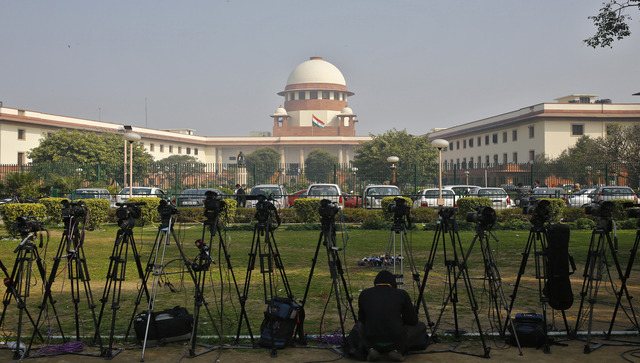A five-judge Constitution bench of the Supreme Court on Monday pronounced three separate judgments to decide the validity of the Centre’s decision of August 5, 2019 to abrogate the provisions of Article 370 of the Constitution, which bestowed a special status on the erstwhile state of Jammu and Kashmir. The bench comprising Chief Justice of India (CJI) D Y Chandrachud and Justices Sanjay Kishan Kaul, Sanjiv Khanna, B R Gavai and Surya Kant assembled at 10.56 am to pronounce the three separate and concurring judgements. While the CJI writes the judgment on behalf of himself, Justices Gavai and Surya Kant, Justice Kaul and Justice Khanna write separately. The apex court reserved its verdict in the matter on September 5 after a 16-day hearing on a batch of petitions challenging the abrogation of the provisions of Article 370. Here are some reasons CJI Chandrachud gave for
- Article 370 was a temporary provision.
- Jammu and Kashmir did not retain element of sovereignty after joining India.
- Article 370 was meant for the Constitutional integration of Jammu and Kashmir with Union and not for disintegration and the President can declare that Art 370 ceases to exit.
- When Constituent Assembly of J-K ceased to exist, special condition for which Article 370 was introduced ceased to exist.
- Recommendation of Constituent Assembly of J-K was not binding on president of India.
- We hold the president seeking concurrence of union and not state is valid, all provisions of Indian constitution can be applied to J-K.
- We hold exercise of presidential power to issue constitutional order abrogating Article 370 of Constitution as valid, CJI said.
- Parliament’s power to exercise powers of state government under 356(1) isn’t restricted to law making power.
- All provisions of the Constitution can be applied to Jammu and Kashmir to 370(1)(d)
- We uphold validity of decision to carve Union Territory of Ladakh out of Jammu and Kashmir.
)